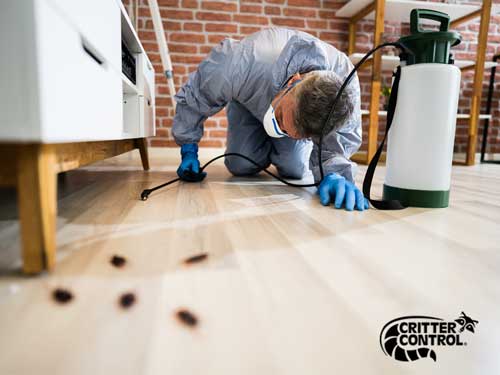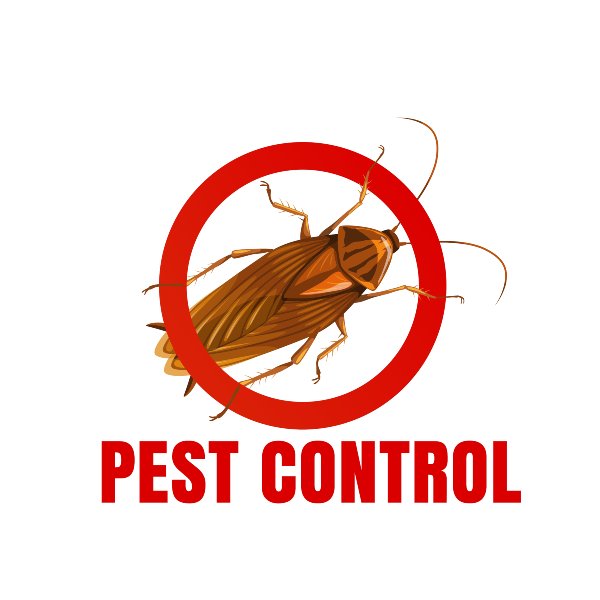Chicago Wasp Nest Removal Specialists: Quick and Trusted Solutions for Your Pest Problems
Wiki Article
Exploring Various Approaches and Strategies for Comprehensive Insect Control in Residential Spaces
The landscape of parasite control in property spaces has developed dramatically, demanding a thorough understanding of numerous techniques that can be used for efficient administration. Standard chemical therapies, while efficient, are increasingly being matched by environment-friendly options and Integrated Parasite Administration (IPM) strategies.Recognizing Insect Control Fundamentals
Effective insect control is important for keeping a healthy and balanced and secure living setting. Understanding the fundamentals of insect control involves identifying the kinds of insects that frequently get into property spaces, the possible dangers they posture, and the value of safety nets. Common home insects consist of rodents, bugs, and various other unwanted animals that can compromise hygiene, damage home, and cause wellness problems.An important primary step in pest control is recognizing the details insects existing. This can entail checking locations such as basements, attics, and kitchens, where pests are most likely to grow. Once identified, it is crucial to recognize their habits, breeding cycles, and liked settings, which can notify suitable control techniques.
Precautionary measures are essential to reliable parasite administration. These consist of securing access factors, keeping cleanliness, and minimizing mess to remove hiding areas. Furthermore, appropriate food storage and waste management can considerably decrease the appeal of a home for insects.

Typical Chemical Therapies
Amongst the different parasite control techniques, traditional chemical therapies have long been employed to deal with infestations in residential rooms. These treatments commonly involve the application of chemical pesticides developed to eliminate parasites such as pests, rodents, and other unwanted organisms. The effectiveness of these chemicals can differ, relying on the kind of pest, the formula of the chemical, and the method of application.
Usual courses of typical chemical treatments include pesticides, fungicides, rodenticides, and herbicides, each tailored to battle certain insects. Insecticides, for example, might target cockroaches, termites, or ants, while rodenticides are especially formulated to regulate rodent populations. These chemicals are frequently available in different kinds, including baits, granules, and sprays, enabling house owners versatility in application.
Regardless of their performance, conventional chemical treatments elevate issues regarding possible toxicity to humans, pet dogs, and useful microorganisms in the environment. For that reason, it is crucial for house owners to thoroughly adhere to application standards and safety precautions to decrease threats. Integrated Pest Administration (IPM) approaches can enhance these therapies, ensuring a more all natural strategy to pest control while optimizing efficacy and safety and security in property settings.
Eco-Friendly Insect Control Options
Environment-friendly parasite control choices are obtaining appeal as house owners seek much safer and much more sustainable choices to traditional chemical therapies. These methods prioritize the health of both homeowners and the atmosphere, minimizing the influence of bug control practices.One extensively adopted green technique is the use of all-natural repellents stemmed from important oils, such as pepper mint and citronella. These oils not just discourage insects yet additionally give positive scents for interior rooms. Diatomaceous earth, a powder made from fossilized algae, acts as an all-natural insecticide by damaging the exoskeletons of pests upon contact, leading to dehydration.
Another reliable strategy entails promoting biodiversity in backyards and yards. Presenting helpful insects, such as ladybugs and lacewings, can naturally control pest populaces (Preventative pest control services Chicago). Furthermore, utilizing catches made from eco-friendly materials can assist capture and get rid of bugs without triggering injury to the ecosystem
Normal maintenance, such as sealing entrance factors and appropriate hygiene, additional enhances the effectiveness of eco-friendly pest control. Home owners can take proactive measures to prevent invasions, making sure a more lasting living setting while effectively managing pest-related concerns.
Integrated Parasite Monitoring Strategies
Executing integrated bug management (IPM) techniques uses a thorough strategy to pest control that emphasizes avoidance and long-term services. IPM integrates multiple tactics, concentrating on understanding parasite habits, life process, and eco-friendly dynamics to lessen pest populaces successfully. This diverse strategy prioritizes non-chemical techniques, such as biological control, habitat control, and social techniques, to decrease dependence on pesticides.A foundational facet of IPM is checking and determining insects properly. When treatment is required, this entails regular examinations and the facility of activity limits to determine. By comprehending the details insects impacting property environments, targeted treatments can be used, lowering the chance of unnecessary pesticide applications.
An additional vital part of IPM is enlightening house owners about the significance of hygiene and maintenance techniques. By fostering an atmosphere that prevents bug invasions-- such as securing entrance points and managing dampness-- residents can dramatically mitigate the risk of bug problems. Additionally, when chemical controls are considered required, IPM advocates helpful site for making use of the least harmful options to lessen environmental impact. Through these strategies, IPM not only addresses current parasite problems yet likewise cultivates sustainable techniques go to website that promote lasting insect management success.
Preventative Measures for Homes
To repel possible insect infestations, house owners must adopt a proactive strategy that highlights preventative steps. This starts with keeping a tidy and organized home, as mess and food debris bring in bugs. Preventative pest control services Chicago. Regularly vacuuming, sweeping, and wiping down surface areas can dramatically reduce the risk of problemsIn addition, securing entry factors is important. House owners should check home windows, doors, and structure fractures for voids that could allow parasites access to the home. Using caulk and weather condition removing can effectively obstruct these entrances.
Correct food storage is another vital procedure. Keeping food in airtight containers and quickly cleaning up spills or crumbs aids deter rats and insects.
In addition, taking care of outside settings can prevent pests from trespassing on household areas. Homeowners need to guarantee that drain systems are operating well, and landscape design is kept clean. Trimming bushes and trees away from your home and getting rid of standing water can even more diminish insect habitats.

Final Thought
In conclusion, efficient bug control in domestic spaces necessitates a multifaceted technique that integrates conventional chemical treatments with environmentally friendly techniques and Integrated Bug Management strategies. By prioritizing preventative measures, such as maintaining sanitation and securing entry factors, house owners can substantially reduce pest occurrences.Understanding the fundamentals of parasite control includes recognizing the kinds of insects that typically get into domestic areas, the possible dangers they present, and the importance of preventive procedures.A vital very first action in parasite control is recognizing the specific insects existing. Integrated Pest Administration (IPM) strategies can enhance these therapies, making sure a more the original source alternative approach to pest control while taking full advantage of effectiveness and safety and security in residential setups.
Executing incorporated pest monitoring (IPM) techniques uses a thorough technique to pest control that emphasizes avoidance and long-term solutions.In final thought, reliable insect control in domestic rooms demands a complex method that incorporates typical chemical therapies with environment-friendly practices and Integrated Insect Administration techniques.
Report this wiki page